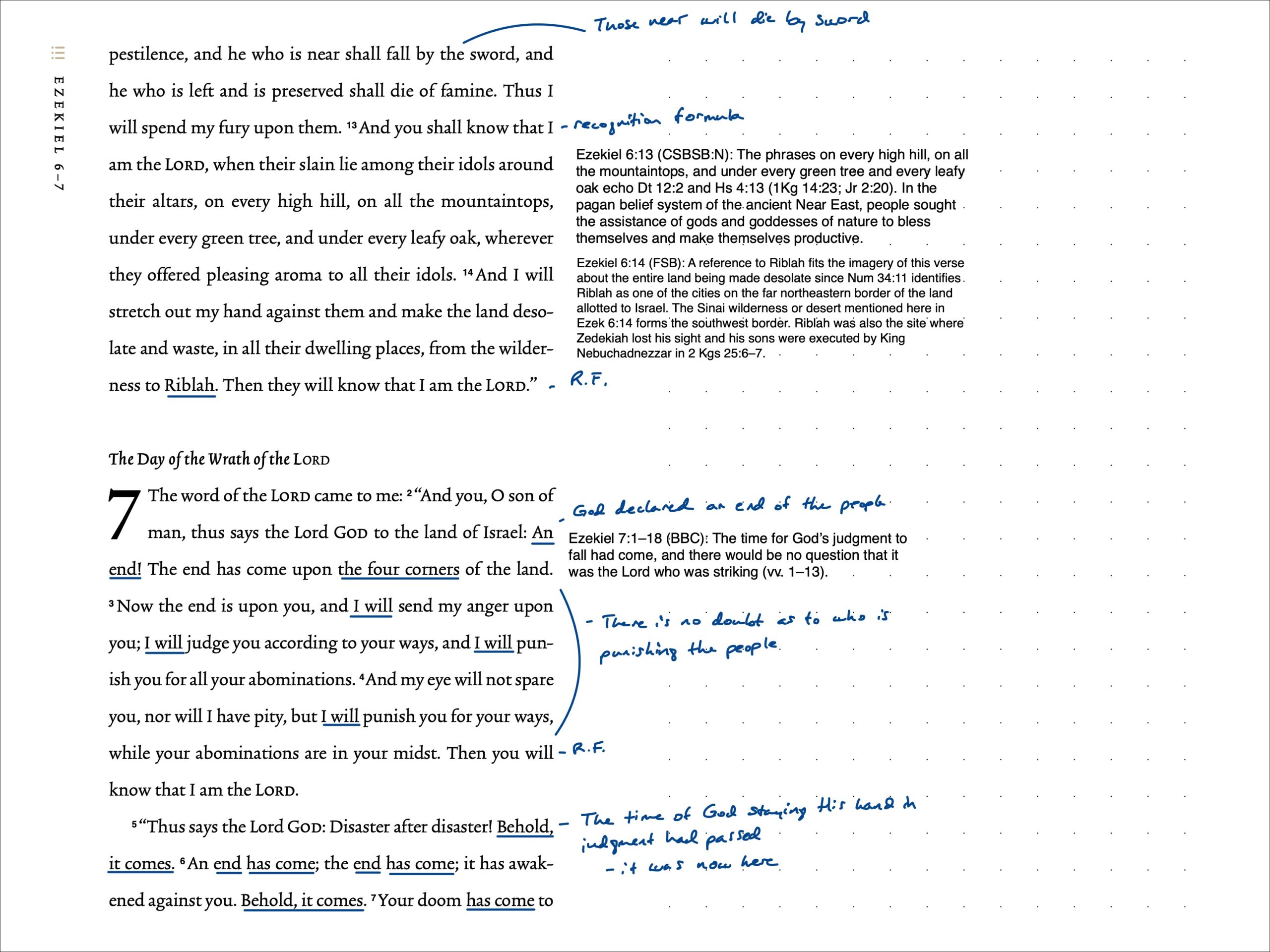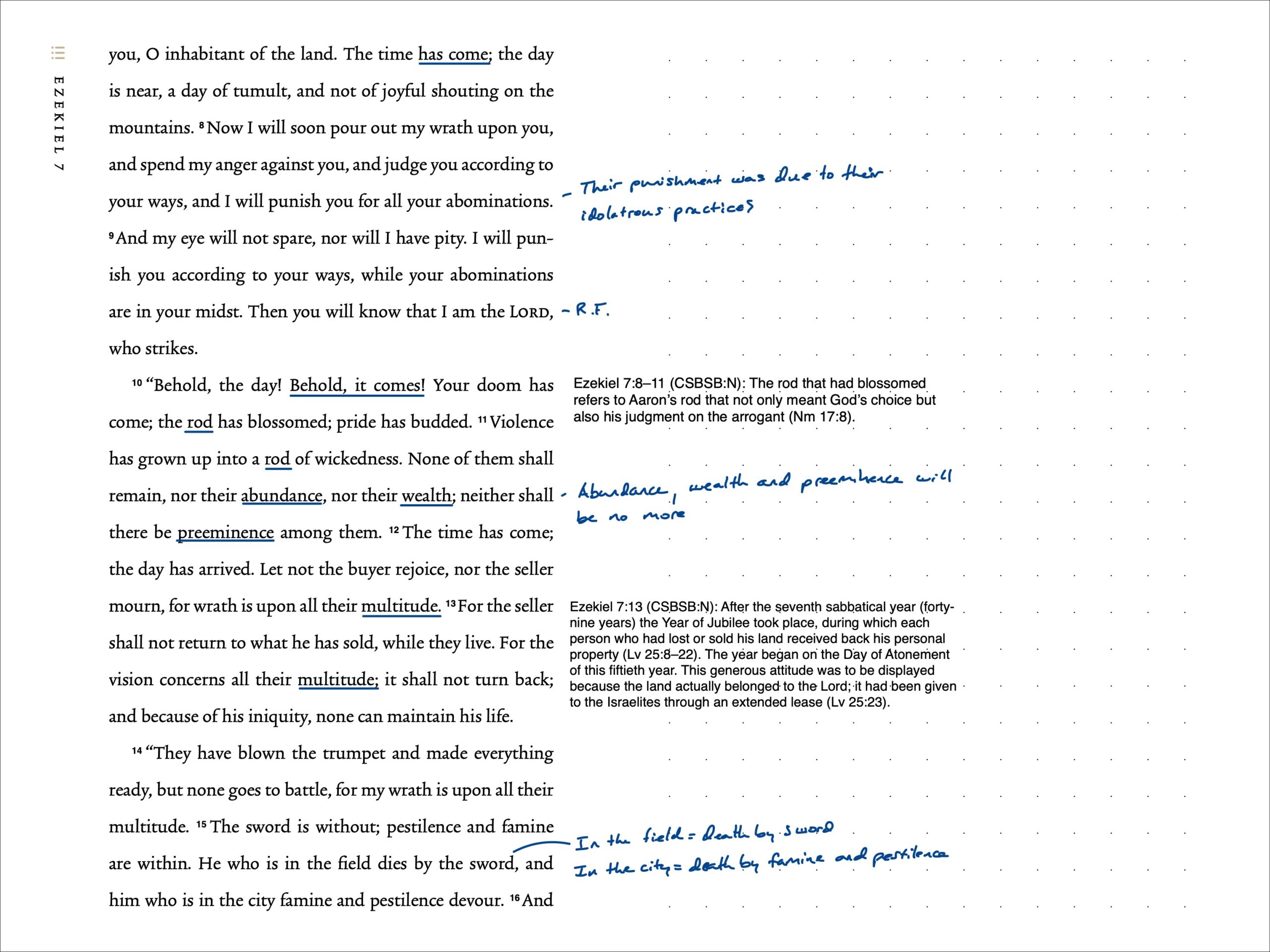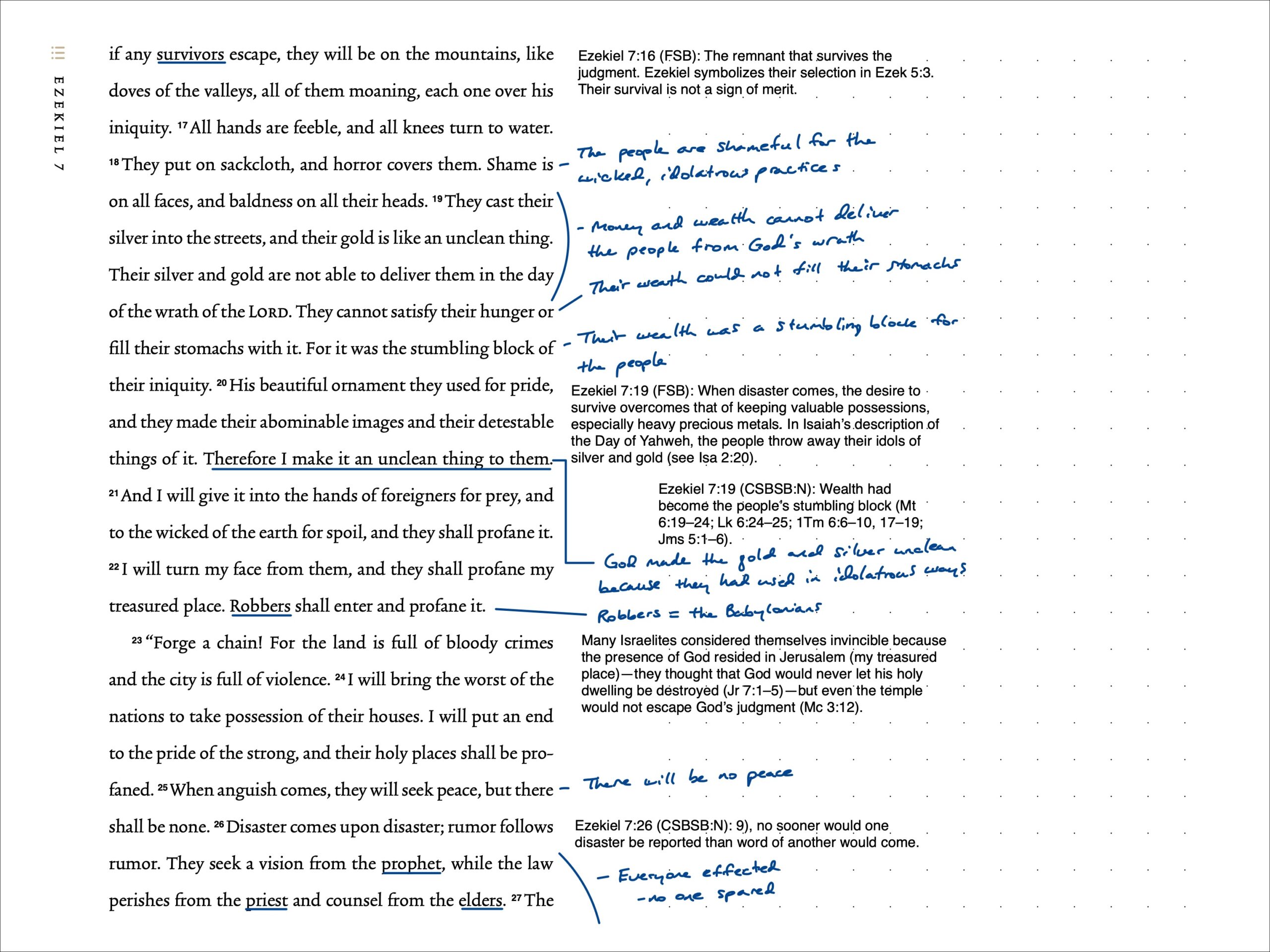| Date | Version | Reading Plan |
|---|---|---|
| @August 27, 2023 | ESV (2016) | ESV Prophets Plan 2023 |
Pericopes
- The Day of the Wrath of the Lord
Notes
The chapter opens with a word of the LORD that came to Ezekiel to declare and end to the people of Israel. The time of God’s judgment had come and there would be no question that it was the Lord who was striking. The repetition of “I will (God)” and “you/your (the people)” is heavy in this section.
In Ezek. 7:5, Ezekiel speaks for God disaster after disaster on the people. The phrases “behold” and “has come” are repeated emphatically, stressing the immanence of God’s judgment. The time of God staying His hand in judgment had passed. God will soon pour His wrath on them as punishment for all their abominations (Ezek. 7:8). The recognition formula concludes this section.
In Ezek. 7:10-13, God says that their doom has come, “the rod has blossomed; pride has budded.” (Ezek. 7:10). The rod refer to Aaron’s rod that not only meant God’s choice but also His judgment on the arrogant (Num. 17:8). The buyer was not to rejoice nor the seller mourn because God’s wrath was upon them all (Ezek. 7:12). The “buyer” and “seller” was a reference to the Year of Jubilee which happened after the 7th sabbatical year (every 49 years). Each person who had lost or sold their land could receive it back (Lev. 25:8-22). This generosity was to be displayed because the land actually belonged to the Lord.
Ezek. 7:14-18 describes how the people blew the trumpet and made everything ready but none went to battle because God’s wrath was upon them. The people in the field die by the sword and those in the city die by famine and pestilence (Ezek. 7:15). There will be survivors (the remnant symbolized in Ezek. 5:3) but it is not through their own merit. The people respond shamefully for their wickedness, putting on sackcloth and baldness on their heads (Ezek. 7:18).
In Ezek. 7:19-22, the people cast their silver in the streets and their gold was now an unclean thing. Their wealth that had become a stumbling block for them was not able to deliver them (Ezek. 7:19). When disaster came, their desire to survive overcame their desire to keep their valuable possessions. God made the gold unclean because they had used it to fashion abominable images. Robbers (the Babylonians) would now enter and profane it.
In the final verses (Ezek. 7:23-27), God’s judgment on the people crescendos, describing the land as being “full of bloody crimes and the city is full of violence”. (Ezek. 7:23). God will “bring the worst of the nations to take possession of their houses.” (Ezek. 7:24). The will be disaster upon disaster, where no sooner will one disaster be reported than another one would come. Everyone will be effected and nearly every office is listed (Ezek. 7:26-27): 1) prophet, 2) priest, 3) elders, 3) king, 4) prince, 5) people. The chapter concludes with the recognition formula.
Application
God’s judgment was now upon the people. Their idolatrous practices had reached critical mass and now there was no staying God’s hand. So bad was it that people were tossing silver in the streets and gold was made unclean. Survival had become more valuable than any worldly wealth which had no preserving or protective effect against the disaster.
What a wonderful chapter for putting the accumulation of earthly possessions into perspective. This is timely and deeply convicting for me as I struggle with proper stewardship of finances. I am abundantly blessed to be in such a fruitful season of financial prosperity, but I also must realize that this is not without divine purpose. Having never been in such a position before, it is so easy to fall into the trap of taking control of it and claiming personal right to it. It is only through seeing that it all comes from Him and all belongs to Him allows me to release my grip of it and use it in a way that glorifies Him.
Scripture Journal Notes
Commentaries & Resources Used
- ESV Study Bible. (Wheaton, IL: Crossway, 2008)
- Faithlife Study Bible (Lexham Press, 2016)
- Believer’s Bible Commentary (Thomas Nelson, 2016)
- CSB Study Bible Notes (Holman Bible Publishers, 2017)
- Matthew Henry’s Commentary on the Whole Bible (Guardian Press, 1976)
- The Bible: A Reader’s Guide (Sterling Publishing, 2011)
- The Infographic Bible (Zondervan, 2018)
- ESV Digital Scripture Journal (Crossway, 2019)



